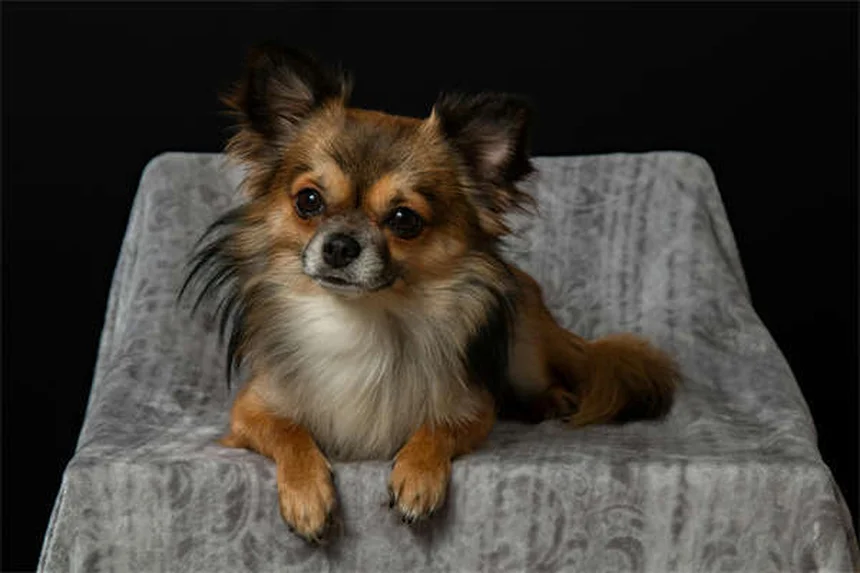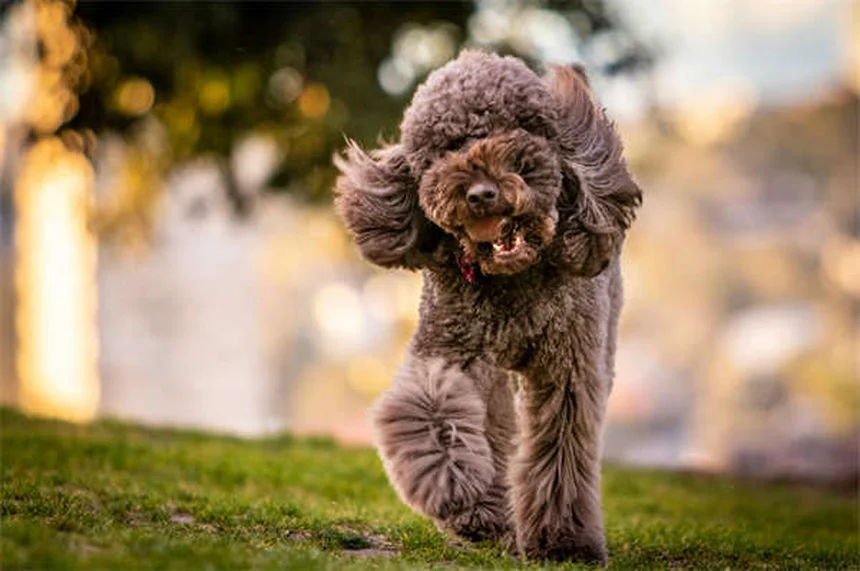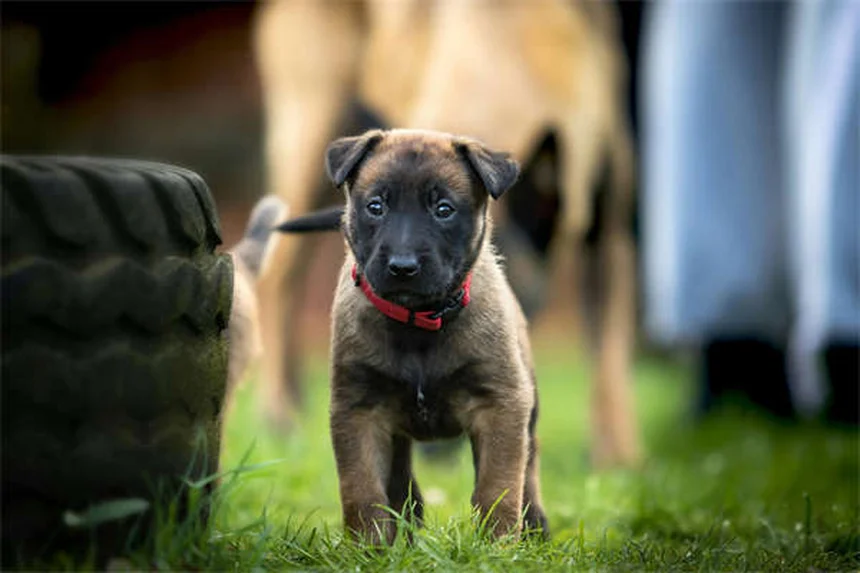Urinary Incontinence in Rabbits: Causes, Symptoms & Treatment
Urinary incontinence in rabbits is more common than you might think! The answer is: Yes, rabbits can develop bladder control issues just like humans do. If you've noticed your bunny having accidents outside the litter box or leaking urine when you pick them up, they might be dealing with urinary incontinence.We see this most often in middle-aged rabbits (3-5 years old), and it's usually caused by weak bladder muscles, nerve damage, or urinary tract blockages. The good news? Most cases can be managed with proper veterinary care and some simple home adjustments. In this guide, we'll walk you through everything you need to know - from spotting the early signs to helping your furry friend stay comfortable and healthy!
- 1、When Your Bunny Can't Hold It Anymore
- 2、Understanding Your Bunny's Unique Needs
- 3、Building a Support System
- 4、Looking at the Big Picture
- 5、FAQs
When Your Bunny Can't Hold It Anymore
Hey there fellow rabbit owners! Let's talk about something we don't often discuss - when our fluffy friends start having "accidents" around the house. Urinary incontinence in rabbits means they lose control of their bladder, just like when you drink too much soda and can't make it to the bathroom in time!
What Exactly Is Happening?
Imagine your bunny's bladder is like a water balloon. Normally, they can control when to "pop" it (pee). But with incontinence, that balloon starts leaking unexpectedly. This usually happens because:
- The bladder muscles get weak (like an old rubber band)
- Something's blocking the pee path (like a kink in the hose)
- The brain-bladder connection gets messed up (like a bad phone signal)
Did you know middle-aged bunnies (3-5 years old) are most likely to develop this? It's like their version of needing reading glasses!
Spotting the Problem Early
Here's how you'll know something's wrong:
| Normal Bunny | Incontinent Bunny |
|---|---|
| Pees in litter box | Leaks urine when picked up |
| Clear yellow urine | Cloudy, thick, brownish urine |
| Normal belly size | Bloated "beer belly" appearance |
Pro tip: Check your bunny's bottom regularly. If the fur looks wet or irritated (we call this "urine scald"), it's time for a vet visit!
 Photos provided by pixabay
Photos provided by pixabay
Why Is This Happening to My Bunny?
Ever wonder "What caused my rabbit's bladder issues?" Let me break it down:
Brain and Nerve Problems
Just like when your foot falls asleep and you can't feel it, nerve damage can make bunnies lose bladder control. This might happen from:
- Back injuries (maybe from jumping wrong)
- Birth defects
- Accidental rough handling
Diet Disasters
You are what you eat - and that's true for bunnies too! Feeding too much alfalfa or calcium supplements can create pee problems. It's like giving kids too much candy - seems fun at first but causes issues later!
Getting the Right Diagnosis
Vets use detective skills to figure out what's wrong. They might:
1. Do a pee test (checking for crystals or infections)
2. Take X-rays (looking for bladder stones)
3. Check reflexes (testing nerve function)
Fun fact: Rabbit urine can change color based on what they eat! Carrots might make it orange - don't panic unless it's consistently abnormal.
Treatment Options That Work
Here's the good news - most cases can be treated at home! Your vet might recommend:
- Antibiotics (if there's infection)
- Special diet changes
- Physical therapy for weak muscles
For serious cases, surgery might be needed to remove stones. But don't worry - bunny surgeries have come a long way!
 Photos provided by pixabay
Photos provided by pixabay
Why Is This Happening to My Bunny?
Caring for a special needs bunny isn't hard - it just requires some extra TLC:
1. Keep them clean - gently wash urine-soaked areas with warm water
2. Comfy bedding - use absorbent pads that wick moisture away
3. Monitor water intake - make sure they're drinking enough (but not too much!)
Remember, even with incontinence, your bunny can still live a happy life! They might just need some extra help staying dry.
Prevention Is Better Than Cure
Want to keep your bunny's bladder healthy? Follow these simple tips:
- Provide unlimited fresh water (change it daily!)
- Feed a balanced diet (mostly hay, limited pellets)
- Encourage exercise (bunny zoomies are good!)
- Keep living areas clean (nobody likes a dirty bathroom)
Final thought: If you notice any changes in your rabbit's peeing habits, don't wait - schedule a vet visit. Early treatment makes all the difference!
Understanding Your Bunny's Unique Needs
The Emotional Impact on Your Rabbit
You might not realize it, but bladder issues can really affect your bunny's mood. Rabbits are naturally clean animals, and when they can't control their bathroom habits, it can make them feel embarrassed or stressed. I've seen bunnies who start avoiding their favorite spots because they're worried about accidents.
Watch for signs of depression like decreased appetite or less interest in playing. Your bunny might even stop grooming themselves properly. The good news? With patience and love, you can help rebuild their confidence. Try placing extra litter boxes around their space and giving them extra cuddle time to reassure them.
 Photos provided by pixabay
Photos provided by pixabay
Why Is This Happening to My Bunny?
Let's get practical! When dealing with incontinence, you'll want to think outside the box. Here's what's worked for me and other rabbit owners:
- Waterproof furniture covers that look like regular blankets
- DIY pee pads made from absorbent towels inside pillowcases
- Elevated resting areas that keep your bunny off cold, wet surfaces
One clever owner I know trained her bunny to use a small ramp leading to a specially designed litter box with lower sides. It took about two weeks of consistent training with treats, but the results were amazing!
When to Consider Specialized Products
Sometimes regular pet supplies just don't cut it. Here's a comparison of products that can help:
| Product Type | Average Cost | Best For |
|---|---|---|
| Washable pee pads | $15-30 | Mild incontinence |
| Rabbit diapers | $25-50 | Mobile bunnies |
| Waterproof bedding | $40-80 | Severe cases |
Ever wonder if rabbit diapers actually work? The answer is yes - with some adjustments! You'll need to check them every 2-3 hours and change immediately when wet. Some bunnies adapt quickly, while others need gradual introduction starting with just 10-15 minutes at a time.
Building a Support System
Finding Your Rabbit Care Tribe
You don't have to figure this out alone! There are amazing online communities where rabbit owners share tips and encouragement. I've gotten some of my best advice from:
- Local rabbit rescue groups (they've seen it all!)
- Facebook groups specifically for special needs rabbits
- Subreddits where owners post creative solutions
Just last month, someone posted about using sheepskin mats to prevent urine scald - a game changer for many bunnies! The key is finding people who understand what you're going through.
Working With Your Vet Team
A great vet is worth their weight in carrots! But how do you know if you've found the right one? Look for these qualities:
1. Experience with rabbit-specific issues
2. Willingness to answer all your questions
3. Offers multiple treatment options
4. Understands the emotional bond you share with your bunny
Don't be afraid to ask for a second opinion if something doesn't feel right. Your bunny's health is too important to leave to chance!
Looking at the Big Picture
How This Affects Your Daily Routine
Caring for an incontinent rabbit does require some lifestyle adjustments, but nothing you can't handle! Here's what a typical day might look like:
Morning: Quick health check, fresh bedding, medication if needed
Afternoon: Potty area cleanup, hydration check
Evening: Gentle cleaning routine, cozy snuggle time
The secret? Build these tasks into your existing schedule. I like to do the morning check while my coffee brews, and evening cleanup during TV commercial breaks. Before you know it, these habits will feel completely natural.
The Silver Linings You Might Not Expect
Here's something beautiful - many owners report that caring for a special needs rabbit actually strengthens their bond. You'll become incredibly attuned to your bunny's needs and behaviors. Some unexpected benefits include:
- Learning new skills like basic rabbit first aid
- Meeting wonderful people in the rabbit community
- Developing greater patience and compassion
- The joy of seeing your bunny thrive despite challenges
One owner told me, "After helping my bunny through this, I feel like we understand each other on a whole new level." And isn't that connection what pet ownership is all about?
E.g. :Loss of Voluntary Control of Urination in Rabbits | PetMD
FAQs
Q: What are the first signs of urinary incontinence in rabbits?
A: The first signs you'll notice are usually urine leakage in unusual places - like when you're holding your bunny or finding wet spots on carpets. Your rabbit might also develop urine scald, which looks like irritated, red skin around their bottom and legs. The urine often changes too - becoming thicker, cloudier, and darker in color (beige to brown instead of normal yellow). If your typically litter-trained bunny starts having frequent accidents or you notice a bloated appearance to their belly, it's time for a vet visit. Remember, catching these symptoms early makes treatment much easier!
Q: Can diet cause urinary incontinence in rabbits?
A: Absolutely! Diet plays a huge role in rabbit bladder health. Feeding too much alfalfa (which is high in calcium) or adding unnecessary supplements can lead to bladder stones and incontinence. It's like giving your bunny the rabbit equivalent of junk food - seems fine at first but causes problems later. We recommend a balanced diet of mostly timothy hay, limited pellets, and fresh greens. Always provide clean, fresh water too - dehydration is another common contributor to urinary issues. If you're unsure about your rabbit's diet, ask your vet for personalized recommendations.
Q: How do vets diagnose urinary incontinence in rabbits?
A: Vets use several methods to get to the root of the problem. First, they'll do a complete physical exam, checking for bladder size and nerve function. They'll likely request a urine sample to test for infections or crystals. X-rays or ultrasound can reveal bladder stones or other obstructions. In some cases, they might recommend blood work to check calcium levels. The process is similar to when humans have urinary issues - just adapted for our bunny friends! The key is finding out whether it's a muscular, neurological, or dietary issue so they can recommend the right treatment.
Q: What's the treatment for incontinent rabbits?
A: Treatment depends on the underlying cause, but most cases involve a combination of approaches. For infections, your vet will prescribe antibiotics. If bladder stones are present, they might recommend dietary changes, increased fluids, or in some cases, surgery. For neurological causes, physical therapy and medications to improve bladder tone can help. At home, you'll need to keep your bunny clean and dry - we suggest using absorbent bedding and gently cleaning urine-soaked areas daily. The good news? With proper care, many rabbits show significant improvement within a few weeks. Your vet will create a customized plan based on your bunny's specific needs.
Q: Can urinary incontinence in rabbits be prevented?
A: While not all cases can be prevented, you can significantly reduce the risk with some simple steps. First, feed a proper diet (mostly hay!) and avoid calcium-rich foods unless specifically recommended by your vet. Make sure your rabbit gets plenty of exercise - a sedentary lifestyle contributes to bladder issues. Keep their living area clean, as rabbits will avoid dirty litter boxes (leading to urine retention). Most importantly, provide unlimited fresh water and monitor your bunny's urination habits regularly. If you notice any changes, don't wait - early intervention is key to preventing more serious problems down the road!




